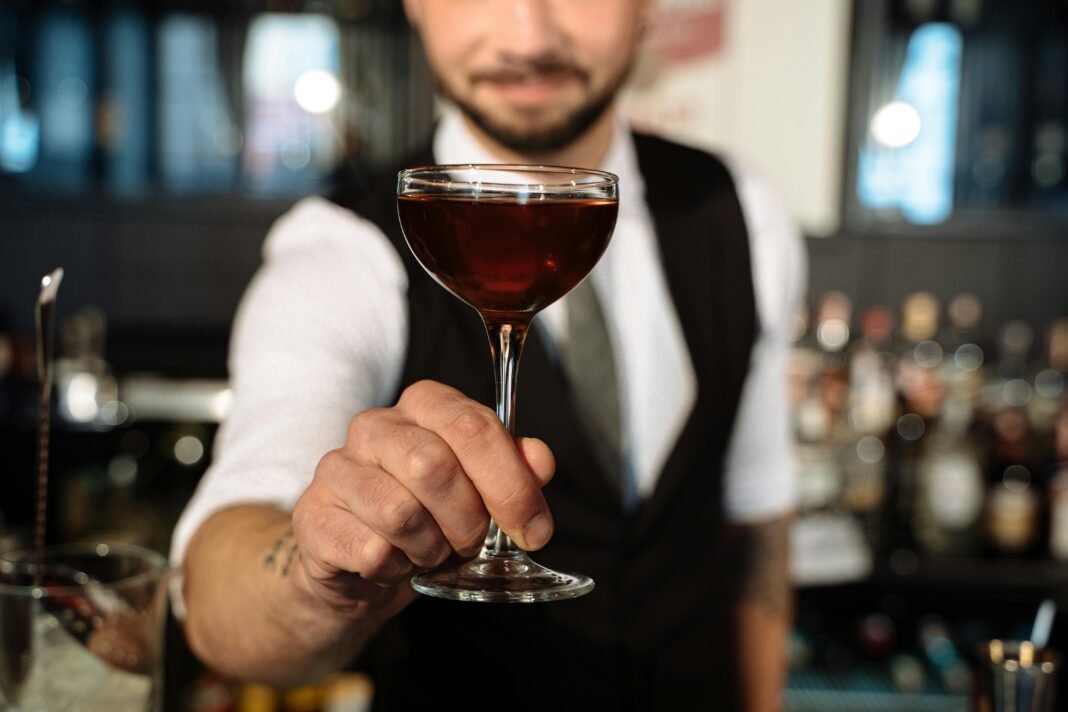When working in a bar or restaurant, one of the servers’ main jobs is serving alcohol. But it’s not just about pouring drinks. Servers need to know important things to make sure they are serving alcohol safely and legally. In this article, we will discuss and cover some key points a server needs to know before serving alcohol, like legal rules, how to spot someone drunk, understanding different types of alcohol, and how to deal with tough situations.
A Server Needs to Know Before Serving Alcohol:
Understanding the Law

The first thing a server needs to know is the legal age for serving and consuming alcohol. This is one of the most important things to follow because serving alcohol to underage individuals is illegal and can lead to fines, loss of a liquor license, or even the shutdown of a bar or restaurant. Most places have a legal drinking age of 21, but it’s important for servers to be aware of the specific laws in their area, as they can vary from state to state or country to country.
A server needs to know how to check IDs carefully. Just quickly looking at an ID is not enough as he must make sure the ID is real. Servers should learn how to spot fake IDs and understand the consequences of serving alcohol to minors. If there’s any doubt about the ID, it’s safer to refuse service than to break the law.
Recognizing Intoxication

Another key point a server needs to know is how to recognize when a guest is intoxicated. Serving alcohol to someone who is already drunk is not only irresponsible but also illegal in many places. Signs of intoxication include slurred speech, poor coordination, glassy eyes, and changes in behavior, such as becoming overly loud or aggressive.
A server needs to know that if a guest shows these signs, it’s time to stop serving them alcohol. In some situations, cutting someone off can be hard, but it’s important for the safety of the guest, the server, and the restaurant or the bar.
Beverage Knowledge And Different Types of Alcohol
A server must have very good beverage knowledge and he needs to know the different types of alcohol they are serving. There are many kinds of alcoholic drinks, including beer, wine, cocktails, and spirits. Each type has different levels of alcohol content, and a server needs to understand these differences. For instance, a shot of whiskey usually has a higher alcohol concentration than a glass of beer. This knowledge will help a server monitor how much alcohol a guest is consuming and prevent over-serving.
Additionally, a server needs to know the popular drink names, ingredients in popular cocktails, and how to recommend drinks based on a guest’s preferences. For example, if someone asks for a light and refreshing drink, the server might suggest a gin and tonic or a light beer. Understanding these options helps improve customer service and ensures that guests have a pleasant experience.
Know the Menu
A server should know the restaurant or bar’s entire menu, not just the drinks. This includes both food and drinks because many guests like to match their drinks with their meals. For example, a light white wine goes well with seafood, while a bold red wine is good with steak.
Knowing which drinks go well with different foods can make the guest’s dining experience better. It also helps the server suggest more items, which can lead to higher tips and a better experience for both the server and the customer.
Handling Difficult Situations
A server needs to know how to handle difficult situations, such as dealing with an aggressive or overly intoxicated customer. In these cases, the server’s main priority should be to de-escalate the situation without causing further issues. If a guest becomes disruptive, it’s important for a server to know when to ask for help, either from a manager or security.
A server needs to know how to politely cut someone off when they’ve had too much to drink. This can be tricky, as the guest may not take the news well. However, a server must be firm but respectful, explaining that it’s for the guest’s safety and the safety of others. Offering a non-alcoholic drink or suggesting they order food can help ease the situation.
Communication with Colleagues
In a busy bar or restaurant, working as a team is very important. A server must communicate well with coworkers, like bartenders, managers, and other staff, especially when serving alcohol. For example, if a server sees a guest getting drunk, they should tell the bartender to avoid serving more drinks.
Good communication also helps make sure guests get their drinks quickly and that orders are correct. A server needs to work well with the team to keep everything running smoothly.
Responsible Alcohol Serving
Being a responsible server means more than just following the law. A server needs to know the importance of serving alcohol responsibly to avoid accidents, such as guests driving home drunk. Some bars offer training on responsible alcohol service, such as the TIPS (Training for Intervention ProcedureS) certification, which teaches servers how to prevent alcohol-related incidents.
A server needs to know that offering water or soft drinks alongside alcoholic beverages can help keep guests hydrated and slow their alcohol intake. Additionally, recommending food can help absorb alcohol and reduce the chances of a guest becoming overly intoxicated.
Health and Safety Standards
Lastly, a server needs to know the health and safety standards related to serving alcohol. This includes maintaining cleanliness, following proper sanitation practices, and ensuring that glasses and utensils are clean. Additionally, a server needs to know how to properly store and handle alcohol to prevent contamination or spoilage.
In some cases, a server might also need to be familiar with allergy concerns, especially if they are serving drinks that contain ingredients like nuts, dairy, or certain fruits. Being aware of these potential issues is essential for guest safety.
Let’s have a look at the below video for a better understanding:
As u can see above, there are many things a server needs to know before serving alcohol in a bar or restaurant. Understanding the law, recognizing intoxication, knowing different types of alcohol, and handling difficult situations are just a few of the responsibilities that come with the job. By being knowledgeable and responsible, a server can ensure that they are serving alcohol in a way that is safe, legal, and enjoyable for their guests.


